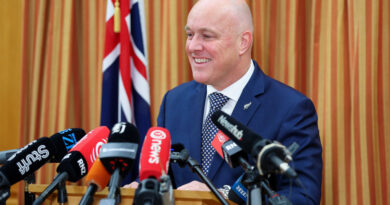IFC suggests that additional tax increases will be necessary in the future to prevent £9 billion in spending cuts.
The Budget included £40 billion in additional taxes, pushing tax levels to 38.2 percent of GDP, the highest ever recorded in the UK, according to the Institute for Fiscal Studies (IFS).
To avoid £9 billion in spending cuts, the government may need to implement further tax increases during this Parliament, as suggested by the IFS.
Labour’s first Budget in 14 years, announced by Chancellor of the Exchequer Rachel Reeves, introduced £40 billion in extra taxes, elevating the tax rate to 38.2 percent of GDP, the IFS noted as a record high for the UK.
Reeves also revealed plans for an annual increase of approximately £70 billion in public spending over the next five years, along with a rise in borrowing averaging £32.3 billion per year.
An analysis of the Budget by the IFS highlighted that day-to-day public service spending would experience fluctuations, with a notable increase of 4.3 percent this year, followed by decreases to 2.6 percent in 2025 and just 1.3 percent in 2026 onwards.
According to IFS Director Paul Johnson, sustaining spending within the 1.3 percent margin would prove to be a significant challenge, potentially leading to real-terms cuts for certain departments.
“Maintaining such low spending increases in the future seems unrealistic and may result in undesirable consequences,” Johnson remarked.
The IFS warned that an additional £9 billion would be required to prevent budget cuts in unprotected departments after the upcoming year.
Impact on Working People
One of the tax increases announced was a 1.2 percent rise in employer NI contributions, reaching a total of 15 percent. This adjustment allowed Reeves to fulfill her commitment of not altering “working people’s payslips,” avoiding changes to income tax, employee NI, or VAT.
Nevertheless, the Office for Budget Responsibility (OBR) raised concerns about the long-term effects of the increased employer NI contributions on work incentives, labor demand, and labor supply, estimating that three-quarters of the impact would affect employees adversely.
The IFS also questioned the anticipated revenue from this tax hike, suggesting that the actual gain for the Treasury might be much lower than the stated £25 billion, with significant compensation costs for public sector employees to consider.
In response to the Budget, the IFS emphasized the inevitability of tax rises but raised criticisms about the government’s decision to raise the stamp duty land tax surcharge and the implications it may have on the housing market and rental sector.
No Future Tax Increases
Downing Street refuted claims that future tax hikes would be necessary to avoid budget cuts, asserting that the outlined spending plans for this Parliament would ensure sustained growth in public services funding.
“It is imperative to make choices and trade-offs to maintain this level of investment in public services, a significant improvement over previous plans inherited by this government,” the spokesperson added.
PA Media contributed to this report.



